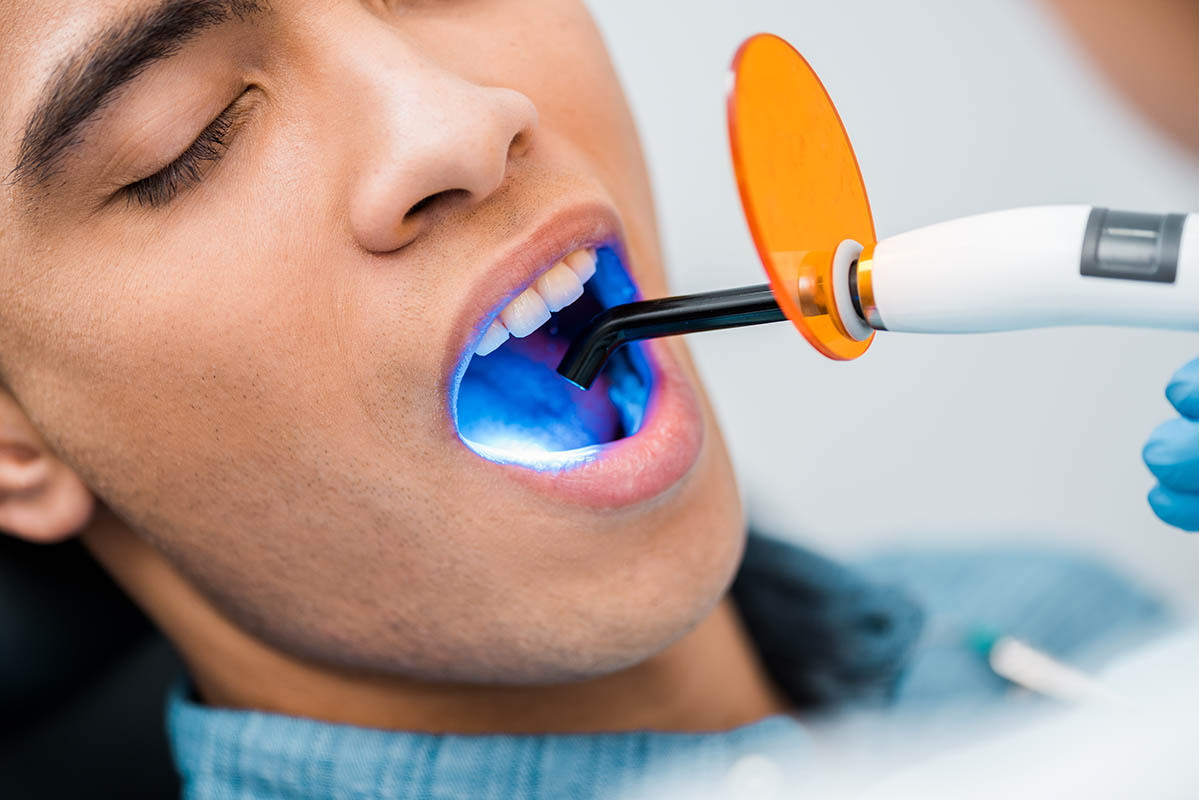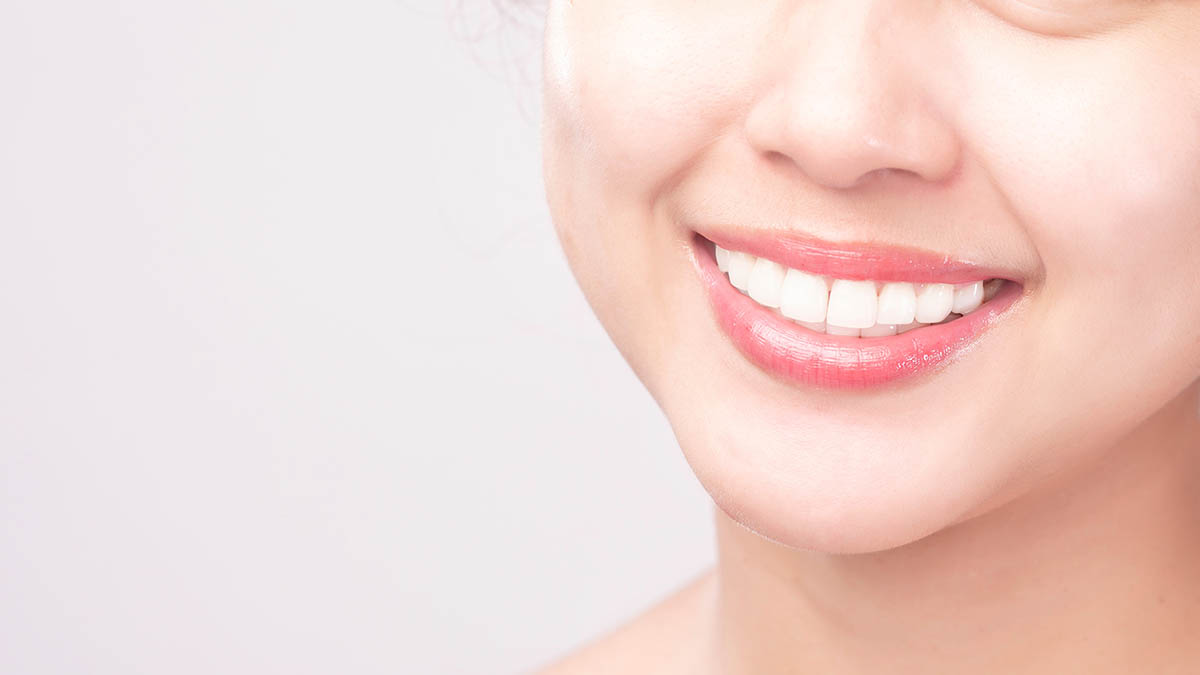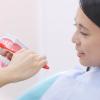
Price/Cost table
Type | Price/Cost $SGD |
| Professional in-office teeth whitening | $800 - $1000 |
| Teeth whitening strips | starting at $12 per package |
| LED teeth whitening | starting at $30 |
| Home teeth whitening kit | $400 - $600 |
| Laser teeth whitening | $400 - $1500 |
Sometimes, even if you spend a good while brushing your teeth and a ton of money on orthodontic work, your teeth still may not look their best. Why is that so? Foods with colour, coffee, and tobacco can take a toll on your smile, making it less shiny and confident. The best way to deal with teeth discolouration and stains is to resort to teeth whitening in Singapore. This procedure is relatively quick and it can have long-term outcomes if you know where to go and what to do. It is one of the most popular procedures in aesthetic dentistry in Singapore.
There are two main approaches here: to try at home products or directly book yourself a professional dental treatment. Either way, if you are wondering how to have whiter teeth brighter smile, stick around because we have some facts for you.
How to whiten teeth - what bleaching agents are employed for teeth whitening in Singapore?
Hydrogen peroxide
The hydrogen peroxide gel is a chemical compound that serves as an antiseptic, bleaching agent and oxidiser. It comes in different concentrations, of which smaller ones are used in medicine and cosmetics. Hydrogen peroxide is the main solution dentists resort to when whitening teeth. It creates dramatic results pretty quickly if used properly 1. However, higher concentrations of Hydrogen peroxide might be not a good option if you have sensitive teeth. Moreover, it can cause unpleasant gum irritation.
Carbamide peroxide
This is another compound found in teeth whitening treatments. It contains both hydrogen peroxide and urea. Oftentimes specialists use it for earwax removal because it has the ability to loosen and soften excessive earwax. Before it can work as a whitening agent, though, it has to be triggered into a reaction that would produce hydrogen peroxide. This is why a form of light is normally introduced into the process. It acts as a catalyst for the chemical.
Activated charcoal
Charcoal is basically a natural substance derived from other substances such as burned wood, olive pits, coconut oil, and more. It has to be oxidised using extreme heat in order to become activated. You can see this agent listed on the labels of loads of dental products, especially teeth whitening toothpaste. It is believed that charcoal toothpaste can do away with the plaque and reduce teeth stain if used continually. However, there is still no scientific evidence for this. That’s why you won’t see dentists opt for it when it comes to professional whitening of teeth.
Baking soda
Sodium bicarbonate is a simple ingredient found in every household that has various applications. There are claims that the slightly abrasive powder can bring you back a whiter smile 2. Even though it may help with mild surface stains, it isn’t as strong or effective as in-office dental whitening; not to mention, it can damage the tooth enamel if rubbed on way too often. It’s available in some toothpaste products.
At-home Teeth Whitening Kits
For those of you who are just starting out, there are over-the-counter whitening products that make a promise to have your pearly whites, well, white. They are budget-friendly, require no special skills, and are easy to use. All the steps are printed on the box so that you know what you are doing from beginning to end. More often than not these take-home whitening kits contain a bleaching agent and trays that you fixate on your teeth.
Now, do a single search on the Internet and you will see that there is a variety of such products. Let’s take a look at the most common picks:
LED teeth whitening Singapore
Light-emitting diode, or simply LED, has different uses in the cosmetic industry. The blue light technology in these devices has the ability to speed up the teeth whitening process by catalysing carbamide peroxide. This leads to its transformation into hydrogen peroxide which is what ultimately bleaches the teeth.
The package arrives with mouth trays, non-peroxide gel, special applicators, and a LED light transmitter. It comes with specific instructions on how to use each item and how much time you need to spend on every step. It usually has to be applied for a set period of time, say 10 minutes. You start by smearing the bleaching gel on the inside of the trays and then you slide them in your mouth.
Non-peroxide products
If the thought of using a bleaching agent on your teeth sounds scary, then you can find a product that is peroxide-free.
And this is where the baking soda and activated charcoal come into play. As we already mentioned above, these products do not necessarily offer the whitening powers and effectiveness you are looking for. Before you give them a go, it is important to have a dental check-up to see if you have sensitive teeth. Your dentist will then offer at-home teeth-whitening techniques if you are not ready to schedule a professional procedure yet.
Other products to consider are teeth whitening strips in Singapore. Even though they do contain hydrogen peroxide, it is in negligible amounts and it is not likely to cause any unpleasant reactions. You need to understand that they work on the surface (mostly for external stains), so if you are looking to get rid of serious internal stains that are located deep inside the tooth, this method of teeth whitening is anything but ideal.
Some beauty salons may also offer non-peroxide teeth whitening treatments. However, it might not a good idea to relay to non-professionals. They often use an agent such as sodium perborate which can be not very effective in the long run. In addition, sodium perborate might be damaging for the teeth.
Dentist-administered Procedures in Singapore
Now, there are a wide range of in-office whitening (chairside teeth whitening) treatments. Some involve laser light and others rely solely on hydrogen peroxide. The treatment will depend on the specialist you stick with and your personal preferences. That being said, your budget will come into play as well.
When you step into the office for your professional teeth whitening session, first they will check for any pre-existing conditions such as gum disease, cavities or tooth decay. Second, they will take a mould of your teeth which will be used to craft a custom take-home teeth whitening tray for you. After that, they will put a protective cover over your gums and other parts of the mouth that won’t be involved during the procedure, and then they will make you put on safety eyewear.
Next up, they will apply the bleaching agent that will convert your yellowish teeth into pearly whites. The timeframe is strictly calculated so that no damage is caused. While the time is ticking on, the specialist will periodically check in on you to make sure everything is going smoothly. More bleach will be applied as necessary.
To make the process more effective, a laser light will be pointed at the teeth to trigger the bleaching agent and accelerate the process. This means you don’t have to spend hours confined to the dental chair for this treatment.
Toward the end of the process, it is not uncommon to experience electric shocks in the treated area. According to doctors, this is a normal reaction of the teeth to hydrogen peroxide and you shouldn’t be worried about it.
When the session is over, you will see instant results. Your dentist will give you on-site instructions on what to do and how to care for your pearly whites afterwards. They will hand a list of foods and drinks you should and should not consume to sustain the outcome. Since your teeth will be a tad sensitive right after the procedure, the practitioner may suggest tips to keep teeth sensitivity at bay.
Last but not least, you will receive customised trays to take home which you have to insert in your mouth for a definite period of time as directed. They will help you keep the effects of the treatment for as long as possible so you don’t have to return to the doctor’s office anytime soon.
LED vs Laser Teeth Whitening Treatments

Laser teeth whitening is a much better alternative and here is why. First and foremost, the procedure is not time-consuming and is relatively safer. Second, the results hold up longer and there is higher patient satisfaction. And thirdly, tooth sensitivity is rarely a problem.
LED exposure, although not harmful, can have some side effects. Laser proves to be a way more effective method than LED teeth whitening method 3.
Benefits of Whitening Teeth in Singapore
- The most obvious benefit is an improved oral health and overall appearance. Even if you have good oral hygiene and brush and floss your teeth regularly, certain drinks and foods can cause extrinsic stains and tooth discolouration. A teeth whitening treatment will deal with that.
- White teeth are perceived to be cleaner and better groomed. This conveys the message that you take good care of yourself and you are reliable, giving you the chance to create bolder first impressions. It also helps you come across as trustworthy and this can be key to anything business-related.
- Having pearly whites also boosts self-confidence. It can affect all walks of life and personal commitments. Knowing that your natural teeth are nice and white will make you smile more often, even as you are walking down the street. And ultimately, people will sense this energy and feel drawn to it.
- It is not costly. Well, it depends on the service you choose. Some dentists charge more than others. But of course, you are free to try a take-home teeth whitening kit and it is quite affordable.
Why Choose Professional Over At-Home Whitening?

The greatest distinction between take-home whitening kit and dentist-administered procedures lies in the percentage of hydrogen peroxide needed. Medical-assisted treatments tend to contain 35% hydrogen peroxide which sits on your teeth for a given amount of time, completely isolated from the rest of the tissue. This way it can work on the surfaces you want it to work on rather than interfere with other parts of the mouth and cause damage.
In comparison, the hydrogen peroxide you find at drugstores usually comes in smaller concentrations, such as 3% or 10%, and that number can run a maximum of 20%. Technically, it could still whiten your teeth if it sits long enough but it will take a significantly bigger timeframe to work its magic. And truth is, you don’t have the knowledge and tools to make it happen.
Another obvious reason to stick with professional teeth whitening treatment is the outcome. Since the products are stronger and the equipment is more refined, you will get even results. Your white smile will look natural. The in-office procedure can address heavy tooth discolouration and teeth stains that at-home trays don’t typically treat.
It is not about a universal approach here. This is what you get with DIY remedies and whitening kits. They come in a certain size and shape that will not fit your teeth perfectly and can leave some areas more exposed to bleach than others. And this is a sure-fire way of getting uneven results.
Another common problem is dental crowns and fillings, they may not change colour the way that your teeth will. This explains why DIY kits work for some and completely ruin it for others.
As for professional teeth whitening in Singapore, it is a customisable session that targets the specific problems you have. Such a treatment may address different types of teeth stains - external and intrinsic stain. It works with your preferences in mind - exactly how bright you want your teeth to be in terms of shades and which areas you are most dissatisfied with.
With a take-home kit, you have less control of what could happen and you generally risk doing physical harm to your gums and tooth enamel. This will lead to sensitive teeth and other problems. It doesn’t take a scientist to know that a certified dentist is more experienced with and knowledgeable about the whitening of the teeth. They will cover all parts of your mouth that can get in the way and adjust the amount of whitening substance they put on your teeth.
Not only that but they will monitor the process all the way through to make any changes as needed. Moreover, post-session care is available. The fact that you will be supervised after the treatment means that you can avoid complications and future problems.
And here is something that gets discussed less often than the other issues. In-office treatment enables you to enjoy the results longer. Once your session is over, the dentist will provide you with a whitening tray to use at home so that you can maintain a beautiful outcome.
Finally, in-office teeth whitening treatments require a single session. It is not a long-term commitment. You get it done once and you enjoy your beautiful smile for the months to come.
Teeth Whitening Singapore: Cost
You might have to pay anywhere between $800 and $1,000 for your teeth whitening treatment if you decide to have a specialist do it for you. On the other hand, if you buy a take-home teeth whitening kit instead, it will run between $400 and $600.
Whitening strips are more affordable, starting at just $12 per package. And finally, LED whitening of the teeth runs around $30.
So how much does teeth whitening cost in Singapore? Here's the quick summary:
- Professional in-office teeth whitening costs between $800 and $1,000 if you decide to have a specialist do it for you.
- On the other hand, if you buy a take-home teeth whitening kit instead, it will run between $400 and $600.
- Whitening strips are more affordable, starting at just $12 per package.
- Laser teeth whitening can cost between $400 and $1500, depending on the clinic (private vs public).
- And finally, LED whitening of the teeth starts at $30.
For a full teeth whitening price list, get in touch with the dental clinics of your choosing and require more info about their treatments and charges. It is worth mentioning that there may be additional fees regarding the dentist’s work, take-home trays, medicine, etc.
Keep in mind that professional tooth whitening does not go through dental insurance companies because it is an elective procedure.
Q&A about Teeth Whitening Singapore
Q: Can sensitive teeth be whitened?
A: Yes, but you do need to discuss this with a medical professional. If you suffer from tooth sensitivity, your only option will be in-office teeth whitening because it is advanced enough to tackle sensitivity without further damaging the enamel layer.
Q: Can I drink alcohol after teeth whitening?
A: No. You are strongly discouraged from consuming alcoholic beverages after your procedure 4. It’s not only because of their colour. Just don’t forget that using whitening gel can make your teeth extremely vulnerable and the acid in alcohol might weaken the teeth enamel.
Q: What can you eat after teeth whitening in Singapore?
A: The following foods are okay to eat: potatoes, white cheese, pasta, rice, fish, turkey and chicken, white bread, egg whites, onions, porridge, yoghurt, and bananas. That being said, avoid tomato sauces and pesto.
Q: What are some foods to avoid after teeth whitening in Singapore?
A: Major strainers include red wine, dark liquids like tea and coffee, fruit juices, fizzy drinks, tobacco, chocolate and sweets, curry, and dark fruits. If you feel like you can’t stay away from your morning dose of coffee, ensure you drink it through a straw.
Q: Are there any side effects to laser teeth whitening?
A: As mentioned before, your pearly whites may become a little sensitive to hot and cold, as well as staining 4. For this reason, your doctor will prescribe stocking up on some foods and avoiding other foods altogether. Your dentist may also recommend you use a toothpaste with potassium nitrate and fluoride. Don’t worry. This feeling will go away over time.
Q: I’m looking for enamel-safe teeth whitening. Is there such a thing?
A: The best way to keep your enamel surface intact while making your pearly whites brighter is to let a dental professional get the job done. They know what whitening gel to use and what signs to watch out for. If you choose to whiten your teeth at home, make certain to use the product as directed. If you use a product using 10% carbamide peroxide, it is shown by studies to have no harmful effects.
Q: How to find the best teeth whitening dental clinic and the best teeth whitening service?
A: Visit this site every now and then for more accurate info on how to choose a good doctor. Make sure to ask around for a specialist. You could also do a simple search online, read reviews, take recommendations from your friends and relatives, etc.
Q: Should I worry if I swallow saliva during the teeth whitening procedure?
A: Swallowing saliva during this dental procedure is not usually a cause for concern.







